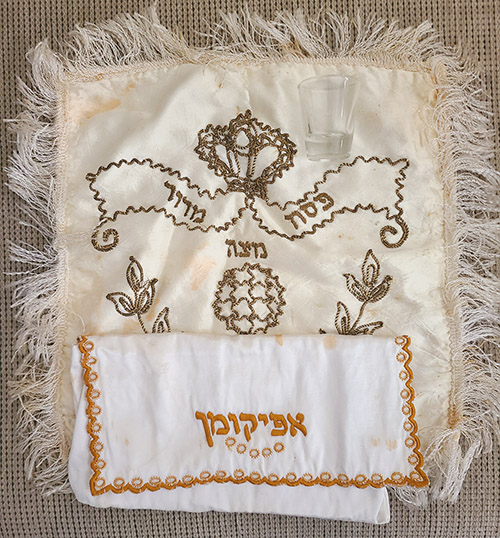

We are going to say Yizkor on the last day of Passover. Some of us will say Yizkor for our parents. Some of us, like my father, will also say it for the children who perished in the Holocaust, those who have no one to remember them.
Yizkor means to “remember.” It is fitting that we remember on Passover. For many of us, Passover is the quintessential family gathering event of the year. The older we get, the more difficult it becomes to remember memories. The farther away we get from our childhood, the more we are remembering the memories of our memories. Many of us cannot remember what our grandparents’ voices sound like or their laughter or their embrace.
That’s when we all become historians of our own lives. Chroniclers of our family narrative.
I am taking a graduate course called Historiography. Simply put, this is a class on how each generation of historians interprets the same story in their own time. It is how one story can change from generation to generation. Each generation reinterprets the past to take ownership and claims their memories as their own future. On Passover, we all become the historians of our own lives. Chroniclers of our family narrative. But what if you don’t have a written family history?
As history teachers we tell our students that before there was written history, there was pre- history. Historians use clues to infer or piece together a narrative of a life that came before man learned to write. Man strove to record a record of his time on earth way before the Egyptians adorned their tombs with hieroglyphs, way before the Hebrews left Egypt.
Historians have artifacts, we have photographs, documents and sometimes recipes.
Just like the symbolic items on the Seder plate, there are symbolic items in each of our families that help us remember our past.
For me, I try to bring something to the table that belonged to my grandparents. I doven with one grandfather’s siddur; I doven wearing the tallis of the other grandfather. My grandparents were the generation born when the Wright Brothers first took to the sky, the generation that held its breath when the stock market crashed in 1929. The generation that saw its sons storm beaches in Europe and islands of the Pacific during World War II. They were the children of immigrants from Europe and so they were more than just the sum of their synagogue experiences. They were the living bridge between two worlds. I feel that connection when I hold my grandmother’s Passover cooking utensils, my grandfather’s shot glass. These are items that my parents have locked away for 25 years, only to see the light of day once a year. We are the children who grew up in a digital age, so we are more than the sum of our social media presence. I have recorded my parents’ recollections of their parents’ Seder, of their grandparents’ songs, stories and customs. I invite you to do the same. In doing so we become the next link in a 100- or 200-year-old memory. In doing so, we claim their memories as our own future.
David Roher is a USAT certified triathlon and marathon coach. He is a multi-Ironman finisher and veteran special education teacher. He is on Instagram @David Roher140.6.
He can be reached at [email protected].













